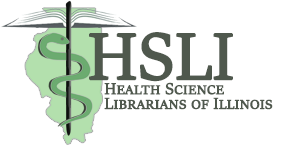During the 2014 election cycle, a number of referenda affecting Illinois libraries were placed on the ballot. The purpose of most referenda impacting libraries in Illinois and elsewhere is to increase the number of people who have access to library services. Library access is an especially critical issue in Illinois, since approximately one million of the state’s residents do not receive library services. This is largely due to that Illinois does not have county libraries-just city, township, and district ones. Illinois residents who do not live within a district’s boundaries must pay for a library card in order to borrow materials.
One library district that chose to address this issue via a referendum is the Gail Borden Public Library District, in Elgin. The district serves 144,597 residents of Elgin, South Elgin, and sections of several other communities (Campton Hills, Streamwood, Hoffman Estates, and Bartlett). Within the geographic region covered by the district, however, are 870 residents who live areas that do not receive library services. Additionally, over half (53 percent) of children in the district’s geographic area do not have access to a public library. In the case of children, belonging to a public library is especially crucial, since libraries play a key role in academic success.
Unfortunately, the referendum for the Gail Borden Public Library District did not pass. Even though 70 percent of the overall vote was in favor of the referendum, the referendum did not receive a majority in any of the five precincts that would have been added to the library district. The opposition was due to that residents of those precincts would have had to pay a library tax, amounting to approximately $240 per year on homes valued at $150,000 or more. If the referendum had passed, the library district would have received about $350,000 in additional funding each year. Even though the referendum failed, the campaign for it was at least a partial success, in that it gave librarians the opportunity to raise awareness of unserved populations in the district. Librarians also found that there was strong support for access to library services; indeed, some residents of the unserved areas said that they would not have bought their current homes, had they known that the properties did not fall within the district’s service area.
There were, however, a number of successful library referenda in Illinois during the past election season. One of these was a referendum (passed with approximately 55 percent of the vote) that will enable the Lemont Public Library to buy bonds that will go toward a $2.8 million renovation project. The project will include upgrading equipment, building a new meeting room, and renovating existing space to create quiet reading areas and a teen section. Another referendum (in the Rockford area), which passed with 52 percent of the vote, will allow continued funding of the North Suburban Library District. Keeping funding at current levels will allow the district to conduct repairs and maintenance at the libraries in Love Park and Roscoe. Additionally, in Park Ridge, 57 percent of voters supported a referendum that will raise $680,000 for the Park Ridge Public Library by increasing taxes on some homeowners (those with properties worth $421,000 or more). The funds will allow the library to return to full hours of operation, undergo a major renovation project, and return the materials budget to its previous level.
During the upcoming legislative session, library referenda will no doubt continue to play a key part in sustaining current levels of funding for existing services and, when possible, extending services to more people. The success or failure of referenda at the local level will merit special attention because of the possibility of substantial funding cuts at the state level, particularly if the income-tax increase is not sustained. Also, as 2015 is an “off year” in the election cycle, it is likely that fewer voters will take note of library referenda and the broader issues associated with library funding. That is why promoting awareness of referenda and other legislation affecting libraries will be particularly critical in the coming year.
For more information on library referenda in Illinois and across the country, click here.
